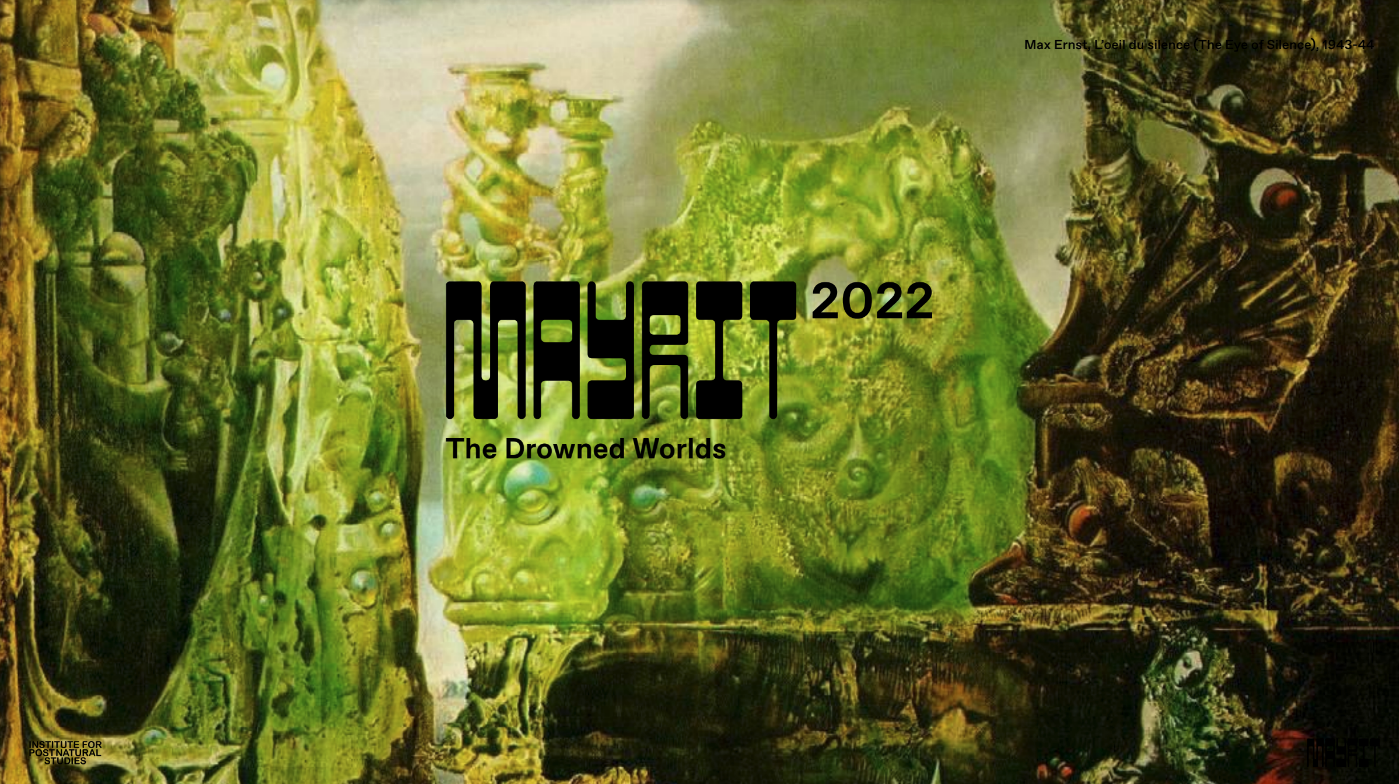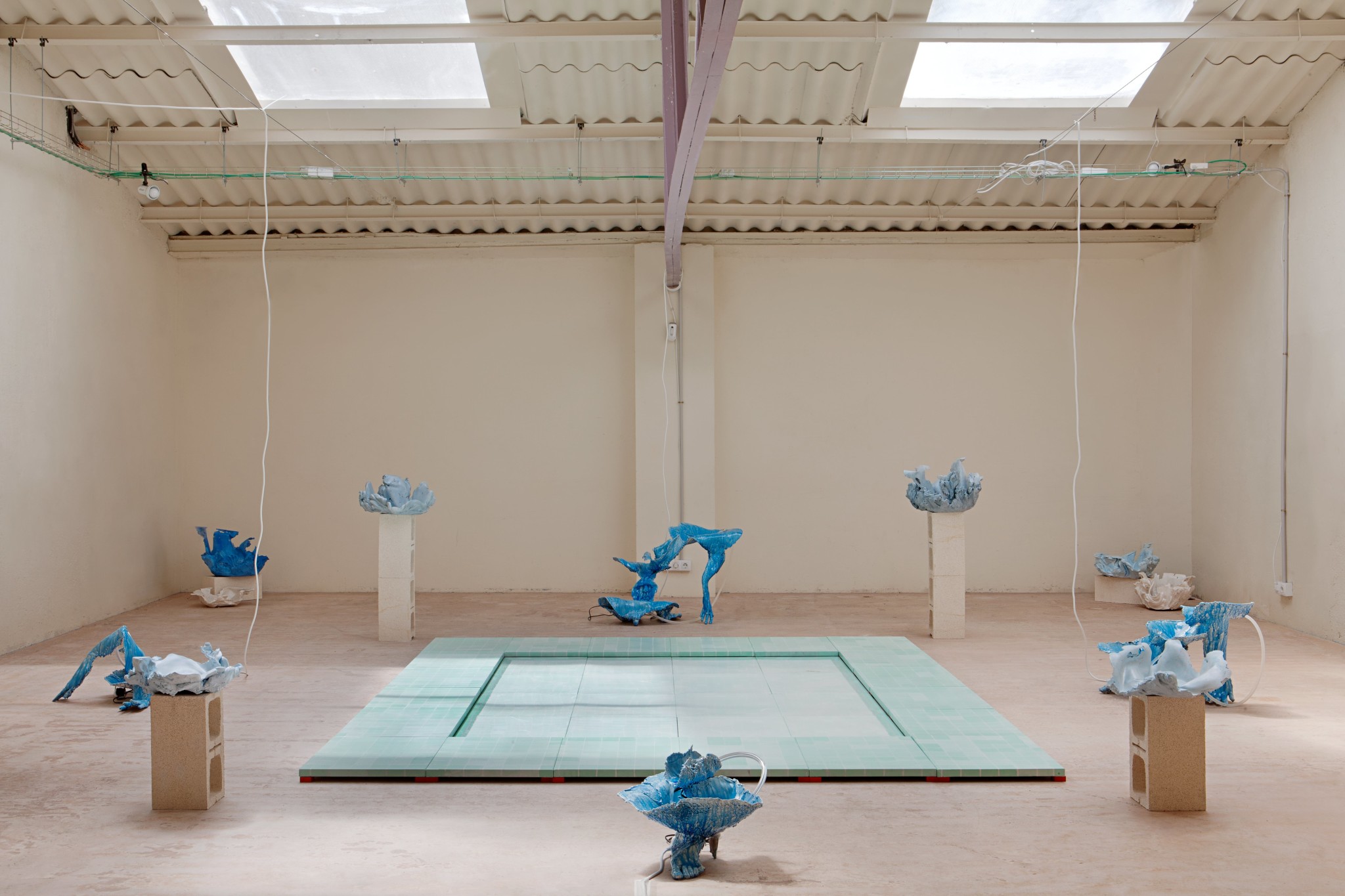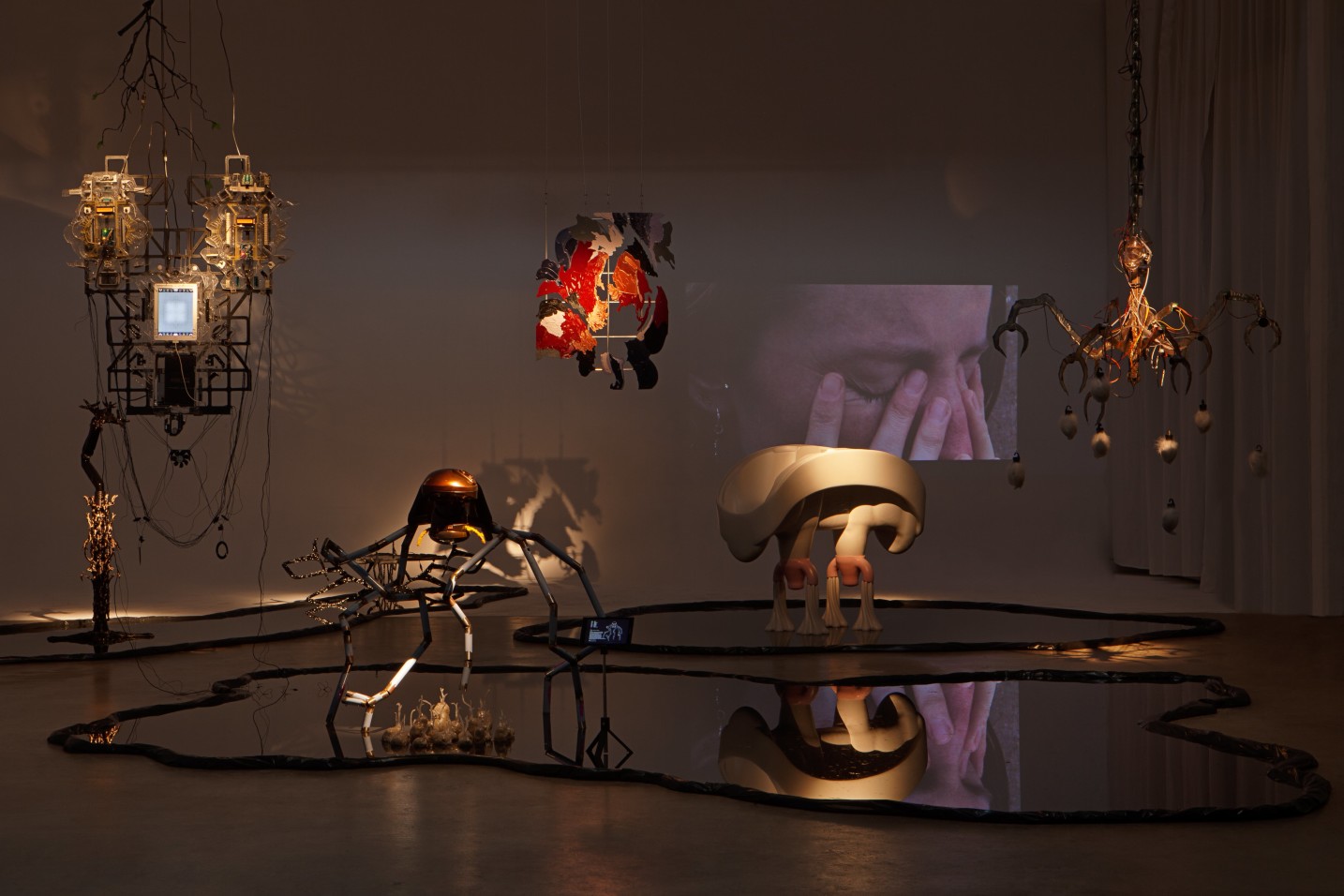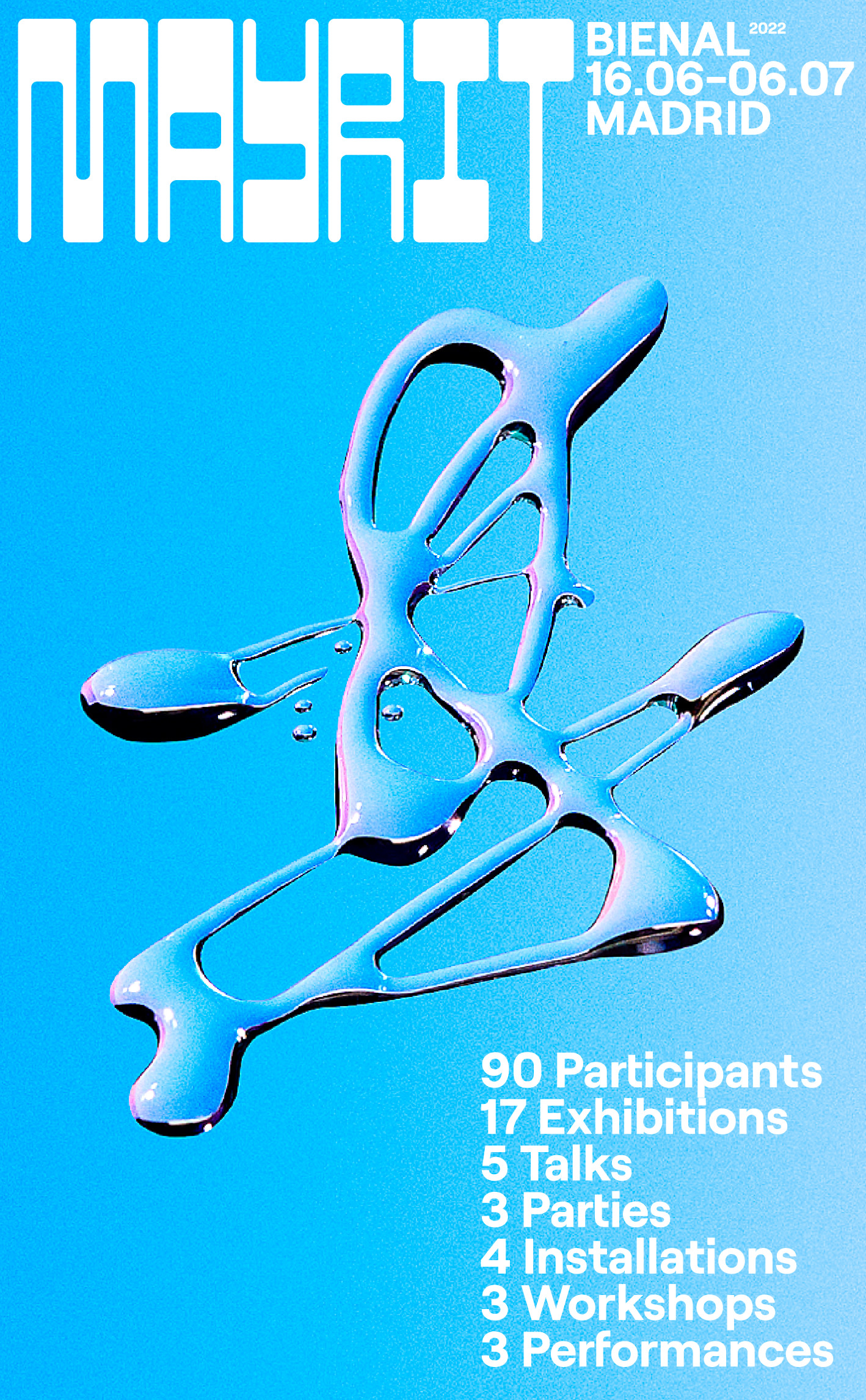Mayrit Bienal 2022
Date:
June 16th - July 7th, 2022
Typology:
Research
Space:
Various locations
Curators:
Miguel Leiro, Common Accounts, Joel Blanco, Sofía Blanco, Victor Clemente, Tres tipos Gráficos, Sina Sohrab,
Location:
Madrid, Spain

MAYRIT 2022 - The drowned world(s) invites us to understand design as a radical practice, a tool for change that speculates with new material ecologies through positioning committed to the future, but above all, to the present. For them, fiction becomes a powerful tool for the design of other realities, but one that has the capacity to transform this one. Taking its name from the eponymous science fiction novel written by J. G. Ballard, The Drowned World(s) will explore, through the fiction of a flooded world, the profound implications of time, space, and inter-species coexistence to dismantle anthropocentric narratives of design and, in turn, open up alternative ways of experiencing and conceiving subjectivity and contemporary aesthetics. This approach to design unfolds new ways of doing and thinking that dilute the binary boundaries of creative disciplines to speak of symbiotic and fluid relationships. Likewise, water not only sustains our own body, but also connects us with other bodies, other worlds, other scales, and other realities, bringing us closer to the context of Madrid, both historical and fictitious. MAYRIT seeks to develop a new typology of design from which to promote a practice aligned with the contemporary moment. Speculative design is understood as a new approach to the discipline: an open set of tools, techniques, and methods; an ecosystem of practices closely connected with different forms of knowledge, but also with speculation and fiction as engines of change for a new way of doing and thinking.

MAYRIT 2022 THE DROWNED WORLD(S) — Research and contextualization of a theoretical framework for a design biennial in Madrid by the Institute for Postnatural Studies MAYRIT is a design event that reflects on the Biennial format from research to establish itself continuously in the city of Madrid. Through the exploration of its historical context and the deepening and complexification of water as a political subject, this exhibition format offers a substantial update to the traditional methodology of this type of event. Questioning the relevance of the biennial is a complicated debate and precisely because of this, is critical and necessary. Could such an established format be modified and adapted to defend a responsible stance in the critical moment in which we live? Understanding the benefits it brings and relying on the deep-rooted tentacles that define its functioning, we believe that the future of the biennial must be rewritten from its own structure. In order to offer a contextualized approach, the proposal of its operationality is based on a critical look at the Madrid site. This site, which has witnessed cultural overlaps and historical slippages for more than ten centuries, finds its true foundation in a complex and invisible subway water system. Making this hidden network visible is the key that makes it possible to connect with a global problem such as the water crisis, from the scale of a local context, becoming the tool to face the challenges to be addressed by the biennial of contemporary design.
Understanding the complexity of water policies is a reflection from which to propose a new approach to the practice of design. The relationship between these policies and the politics of design can form a new map of multidisciplinary and fluid practices, incorporating multi-scalarity, processes, networks, and new methodologies to update the discipline and be able to face environmental, social, and cultural challenges in more innovative ways. MAYRIT is based on six critical Methodologies and their consequent "Practical Proposals" which, as operational frameworks, serve to propose a biennial format in accordance with contemporary needs.
By means of a Diluted Temporality, the program is planned in different phases, giving rise to moments of the greater and lesser flow of content, and continuously permeating the fabric of the city. This "Diluted Calendar" begins six months before the exhibition, shifting the peak of the show.
The Decentralization of both its locations and its objectives allows giving place and voice to other narratives, other places of action, and other practices normally excluded from the traditional design narrative. Through the development of a "Decentralized Atlas", the importance of places on the margins as enablers of new content is revalued.
The Network vs. Node behavior of this biennial serves to foster a design formed by connections, collectives, collaborations, and co-creation. Both the intangible links and its "fractal structure of relationships between agents" enable the horizontal expansion of its networks through the participation of all these agents in the consolidation of a joint and coherent discourse.
Understanding that contemporary design points towards New practices based on Processes and Research, MAYRIT's proposal promotes an innovative view on the role of design through the elaboration of a "Digital Research Platform". It is essential that this type of event promotes Transdisciplinarity in order to transcend toward more complete, complex, and innovative figures in the world of design. This transfer of knowledge between different sectors is achieved through the creation of a "List of Alliances" composed of all those agents capable of expanding the design experience.
The impulse toward New Ecologies opens the spectrum of care towards non-humans, other genders and identities, the care for the materiality of the processes, and the impact of our practice on the whole non-immediate context of the cities in which we live. MAYRIT invites us to rethink the patterns of behavior of this kind of event from a contemporary point of view, based on ecological ethics and radical empathy.
MAYRIT defines itself as the platform from which to transform both the city and the practice of design at many scales. Its new operational frameworks and new theoretical climates are the ideal places from which to address the relationships between design and ecology, between society and object, between public space and private space, and understand both the local and global challenges it faces.
You can find more information on their website MAYRIT

